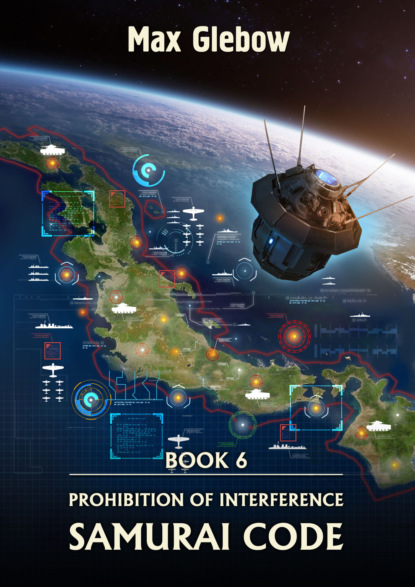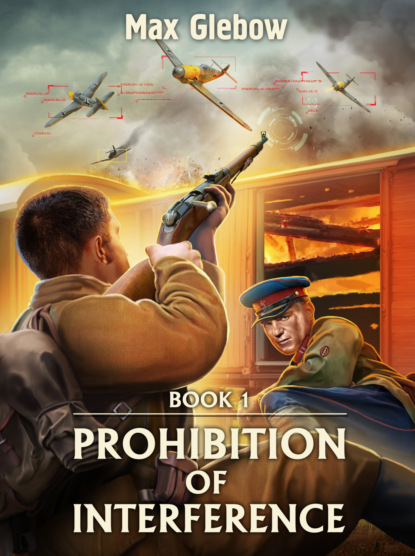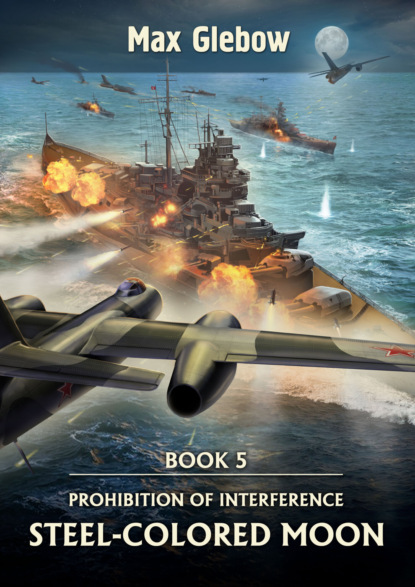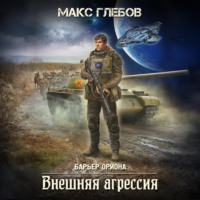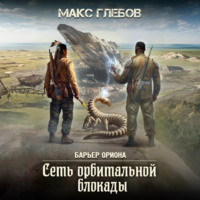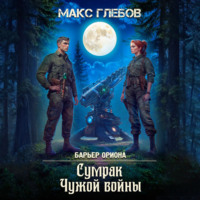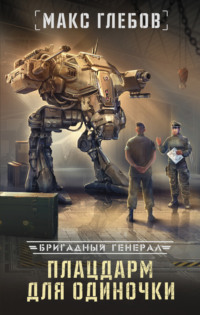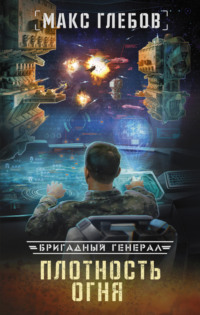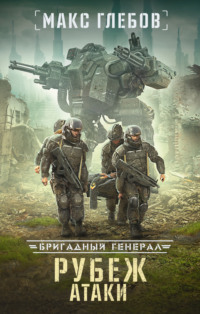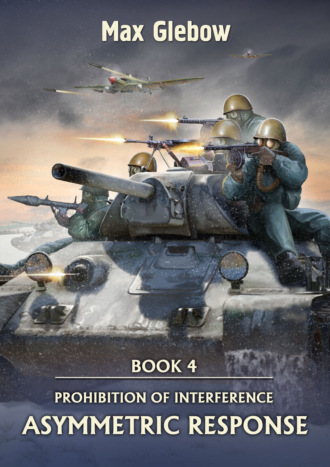
Полная версия
Prohibition of Interference. Book 4. Asymmetric response

Max Glebow
Prohibition of Interference. Book 4. Asymmetric response
Chapter 1
Marshal Shaposhnikov listened to me without interrupting me, and spent almost a minute pondering what he had heard. I waited patiently, understanding how difficult it was for the Chief of General Staff to believe the information he received from me.
“We are not ready for such a war,” the Marshal finally answered. “Your assumption sounds logical, but it needs to be verified by reconnaissance. Such decisions are not made only on the basis of a hypothesis.”
“If the Germans use chemical weapons suddenly, it will demoralize our troops, and the probability of the enemy's unblocking of the Moscow Pocket would increase dramatically. I think this is what the German General Staff's whole plan is based on. Comrade Marshal, we have two or three weeks at most. Then it will be too late. After all, we have scouts, we have partisans. We need to give them a specific task. Such extensive preparations for a chemical attack cannot be completely concealed. Sooner or later my words will be confirmed by facts, but it may be too late.”
“Are you suggesting that we start preparing to use our chemical weapons? Bringing mustard gas and phosgene shells to the front-line depots? Suppliers are struggling to supply the troops with regular ammunition and food in a timely manner, and you want to clog our communications with supplies that may not be needed at all.”
“I am not suggesting that, Comrade Marshal. I consider chemical weapons a barbaric means of warfare, especially when used against civilians. I know that it was used quite extensively in World War I, and in the Civil War, but this practice only strengthens my opinion that sane people would never use it. Therefore, I believe that our chemical troops should focus on protecting the army from chemical weapons, and not on retaliating using such weapons.”
“I don't understand,” Shaposhnikov looked at me with a mixture of surprise and mistrust on his face. “Are you suggesting, Comrade Nagulin, that we tolerate chemical strikes from the enemy and do not respond?”
“We will answer,” I grinned slightly, “and we will respond in such a way as to discourage Hitler forever from further use of poisonous substances. But who says our answer has to be chemical?”
“Explain your point, Lieutenant Colonel.”
“Chemical weapons are highly weather dependent. Their effectiveness hinges on wind direction, air temperature and humidity, and other weather factors such as rain or snow. In addition, a well-trained soldier is able to protect himself from the effects of a chemical munition, and even civilians will suffer fewer casualties from this weapon than from conventional bombs if proper measures are taken. The Germans know this and are probably preparing carefully now, hoping that when the H-hour comes, they will be in a better position compared to our soldiers and commanders. It makes no sense to respond to them with chemical weapons – conventional munitions would work better against the Germans. Besides, we have something to "please" the enemy even without the poisonous substances.”
“Is there something I don't know about the contents of our arsenals?” Shaposhnikov arched his eyebrow slightly.
“This weapon is still in the experimental stage, Comrade Marshal, but it has such high combat potential, that it makes sense to concentrate on bringing it to production as soon as possible. I'm talking about fuel air explosives and thermite mixtures.”
“I'm aware of the thermite mixtures,” the Marshal nodded. “They are used in incendiary bombs and shells. These are highly specialized munitions that have never before been used outside the limited range of applications for which they were created. But this is really the first time I've heard of a fuel-air explosion.”
“I came across information about this research in the process of building a grenade launcher and a warhead for a cruise missile. I had to study a large body of specialized literature on explosives. Our industry, unfortunately, is unable to produce hexogen in sufficient quantities, and I was looking for options to replace it.”
“Were you able to find it?”
“To some extent. After six months of war, we had a severe shortage of explosives and gunpowder. The seizure of a number of plants by the enemy and the evacuation of industry only exacerbated this situation. We encircled Army Group Center, but used up almost all the accumulated stocks of shells and bombs. Now that the Germans recover a little, regroup, and attempt to unblock their troops, it's not quite clear to me what we're going to fight back with. That is why I immediately rejected the idea of loading the existing facilities with new developments – they can't cope as it is.”
“That makes sense,” Shaposhnikov nodded.
“As it turned out, some of the traditional explosives can be replaced by mixtures previously not used in shells and bombs. I think you are well aware that in coal mines and flour mills there are sometimes violent explosions with loss of life and considerable destruction. Such explosion is the rapid combustion of fine particles suspended in the air within an enclosed location. Flour and coal, of course, are far from the best choices for combat use. There are much more effective components. For example, ethylene oxide. This substance is already produced by our chemical industry, albeit not in very large quantities, but if necessary, its output can be increased. I will not bore you with the details, but I am ready to propose a design of ammunition based on this principle. In developing it, I paid special attention to manufacturability. Its design turned out to be relatively uncomplicated and is unlikely to cause difficulties when mastered in industry.”
“What stage is this development at?”
“So far I have only drawings, Comrade Marshal. In order to produce and test the first samples as quickly as possible, we need a decision, that will come from the top.”
“Does Comrade Beria know?”
“Yes, he does. The People's Commissariat of Internal Affairs gave me great support in the process of developing the project. I was given unfettered access to the secret developments of the secret design bureaus operating under the auspices of the NKVD and a staff of design engineers. I couldn't have done it that fast on my own.”
“Your way of promoting your developments violates all the norms accepted in the USSR,” grinned Shaposhnikov, “but after the combat use of the grenade launchers, everyone turns a blind eye to it. Feedback from the units that have already received the first small batches of RGN-1s is unanimous: "Give more and as much as possible!" Okay, I understand about the fuel-air explosion. What about thermite mixtures?”
“Thermite shells have been known for quite a long time, as well as the mixtures used to make them. They are mostly used in incendiary ammunition, but so far they have not proven themselves as universal weapons for one very important reason – thermite projectiles have not been used in a truly massive way, when the effect of their action adds up. The combustion temperature of a mixture of iron oxide, aluminum powder and barium nitrate can exceed 3,000 degrees. A single thermite shell is capable of causing a fire, but if several dozen such shells fall on a relatively small area simultaneously, neither armor, nor trenches, nor even dugouts would protect the enemy – everything would burn. Except that the hits must cover the entire target area at the same time or with a very small time difference. This effect is hard to achieve with conventional artillery, but we have at least two types of weapons for which the thermite mixture is best suited. These are "Katyushas" and cluster bombs. I'll be honest, I didn't have time to prepare a proposal for bombs, but everything turned out better than I thought for the BM-13 rockets. A lot had already been done before me, so I just had to make some adjustments and speed up the development and testing process.”
“And you think this will be enough to counter the chemical threat?”
“I think so. Both thermite weapons and fuel air explosives can have a strong demoralizing effect on enemy soldiers. In fact, we can't really mass-produce such shells and bombs – the industry isn't ready for it, and the stockpiles would quickly run out, but Hitler doesn't know that. If our troops show resistance to chemical attacks and we use these new developments at the same time, there is a good chance that, with the mediation of neutral countries, we can negotiate with the Germans to cease their use of chemical warfare agents in exchange for our rejection of thermite shells and fuel air explosives.”
Shaposhnikov thoughtfully walked over to the map showing the current situation near Moscow. The enormous Moscow Pocket has managed to shrink somewhat over the past week. Despite orders from the Führer, the Germans were retreating from the outskirts of the Soviet capital, seeking to condense the front and free up forces for the upcoming breakthrough from the encirclement.
“I'll voice your suggestions at the meeting of the Headquarters of the Supreme High Command,” the Marshal finally turned to me. “Your assumptions about the enemy's preparations for the use of chemical weapons are still unsupported, but what you suggest could have a significant effect without any threat of a chemical attack. Nevertheless, I share your opinion on the necessity of fully strengthening the chemical protection of the troops and will insist on an immediate solution to this problem.”
* * *Richtengden's mood was by no means upbeat, but today at least he could report to his superiors the concrete results of the analytical work done by his group, and that reconciled the Colonel somewhat with the grim reality.
“Herr General, permission!”
“Come in, Colonel. How are your nerves? You won't ask to go to the front again?”
“Thank you, that's better. Intensive work is the best cure for depression. I will still ask to go to the front, only this time not as a commander of an infantry battalion, but still in my former capacity,” Richtengden allowed himself a slight smile.
“Yes, now I see you're really all right,” grinned the General, “I'm listening to you, Colonel.”
“By now we have accumulated a considerable amount of data on the actions of the Russian marksman in various circumstances, and this allows us to determine the limits of his capabilities with sufficient accuracy.”
“So are we talking about one marksman or several shooters?” The General interrupted his subordinate.
“One marksman. Just one marksman so far. A more detailed analysis of the damage sustained by our planes showed that the second sniper was clearly no match for Nagulin. He may be a pretty capable student, but he doesn't compare to the marksman himself. Based on the rate of fire of the Panzerbüchse-38 and the testimony of the survivors of the battle, it can be concluded that during the battle the second sniper fired about 40 shots, allowing at least 80 percent of misses. Given the complexity of the targets, it is an excellent result, but no more than that. Nothing supernatural. Nagulin would hit 30 times out of 40.”
“That's a relief,” the General nodded. “Carry on.”
“So, let us return to the possibilities of the marksman. We have come to the conclusion that, for all their unusualness, they do have clear boundaries. Practice has shown that the marksman, armed with a large-caliber automatic weapon, can confidently withstand an attack by five or six planes, and only in the situation when they attack other targets than himself. If there are more planes, the objects defended by the marksman begin to take casualties. The marksman was unable to thwart the simultaneous bombing of 20 Ju-87s, even despite the support of a second sniper. The bombers managed to make two approaches and inflicted substantial damage on the enemy infantry. I think if they had attacked not the Russian trenches, but Nagulin himself, the result would have been very sad for him.”
“At last I hear something encouraging,” said the General, strolling leisurely through the office.
“That's not all. Three times the marksman led the actions of the night bombers. In the Kremenchuk area he did it from the ground, and then he twice controlled groups of ten TB-7s and Yer-2s at Kiev and Vyazma. Ten planes is his limit. He can, of course, assemble a larger group, but he cannot manage them effectively. His groups suffered significant losses on both occasions, even when there were only ten wingmen.”
“They were justified losses,” objected the General. “The result achieved by the Russians at both Kiev and Vyazma could not be compared with the loss of several heavy bombers.”
“No doubt,” Richtengden didn't argue, “but that's not the point. The main conclusion from what has been said is that, while betting on the latest achievements of our engineers, we have missed one simple but important nuance – the Russian successfully fights single targets and is not bad against several opponents, even if they are our latest developments, but he simply does not have time to be effective against a large number of conventional planes like the Ju 87.”
“Are you suggesting to pelt Nagulin with corpses, Colonel?” asked the General with doubt in his voice. It was clear that he was thinking hard about the information he had received, but had not yet come to any definite conclusions.
“To be perfectly cynical, one could say that,” Richtengden shrugged. “Casualties will inevitably be high, but it is not so easy to destroy such an unusual enemy.”
“Then what is your idea?”
“The marksman has been practically inactive at the front for a week now. I think the Russians are preparing something. Herr General, what do you think is our most vulnerable point right now, a strike on which could significantly disrupt all of our plans?”
“The air bridge created by the Luftwaffe to supply troops caught in the Moscow Pocket,” the General answered without hesitation. “Reichsmarshal Göring was able to surpass himself. Our troops in the south and near Leningrad groan from the lack of effective air support, but more than a thousand transport planes under dense fighter cover uninterruptedly deliver supplies to the encircled troops, and Russian aviation can do nothing about it, although there have been attempts. Fortunately, they were unsuccessful. The enemy had lost too many planes, supporting his tank offensive at Vyazma, and had simply run out of steam.”
“I have come to a similar conclusion, Herr General,” Richtengden nodded. “I think this is where we should expect another attack of the marksman. Except that he prefers to fly out at night, and the air bridge operates during the day.”
“Night strikes on airfields are possible. This has already happened in Nagulin's practice.”
“We're ready for this kind of development,” the Colonel objected, “The airfields of transport planes are well protected, and the planes themselves are dispersed and thoroughly camouflaged at night.”
“And how do you think Nagulin will act?”
“I think he's going to control the fire from the ground. The Russian 85 mm anti-aircraft 52-k guns can fire at aerial targets at altitudes up to ten kilometers, while our Junkers transport planes do not go above six kilometers. In addition, Heinkel He-111 bombers involved in cargo transports have a practical ceiling of 8,000 meters. At these heights the Russian anti-aircraft gunners rarely manage to hit our planes, but if the marksman takes over…”
“Okay, let's say that's the case. What's next?”
“And then everything is simple enough. As soon as any of our groups of transport planes come under abnormally accurate fire from the ground, we will know exactly where the marksman is at the moment. One of our cover fighters will immediately signal the air strike group, which we will have to prepare urgently and keep in constant readiness for departure. As soon as its commander receives the signal, he will lift his machines into the sky and strike at the position of the Russian anti-aircraft guns controlled by Nagulin.”
“The marksman will surely be well protected,” objected the General. “I think at the first sign of an air attack, he will immediately take cover in some secure shelter. I'm sure the Russians will try to build a dugout for him that can only be destroyed by a direct hit from a heavy bomb. And there is also the option of controlling fire by radio, as he has done repeatedly.”
“Anti-aircraft fire requires an immediate response to aircraft maneuvers. There will inevitably be delays when using a radio, and firing efficiency will drop dramatically. I'm sure the marksman will take the place of the gunner in one of the anti-aircraft guns or lead the crew of the anti-aircraft battery fire control unit. Besides, I don't think Nagulin will run to the dugout if we attack,” Richtengden grinned. “Even though he is an Untermensch, he never once gave us a reason to doubt his courage. He will not abandon his comrades and will try to repel the raid. But even if he is ordered and forcibly evacuated to a dugout, we have a means of making sure he does not leave this position alive.”
“Is this some kind of novelty again?”
“Naturally. It would be too presumptuous to count on the guaranteed destruction of the marksman without such surprises. Three years ago, in 1938, our scientists, trying to create a powerful new pesticide, synthesized a substance that completely changed our understanding of toxic gases. This organophosphorus nerve agent was called sarin. Its advantage is that it affects people not only through the respiratory organs, but also through the skin. The only way to protect oneself from sarin is to wear a full hazmat suit, which I'm sure Nagulin won't have. Industrial production of this gas has not yet been mastered anywhere in the world, but as I found out, with the help of experimental facilities we have already produced about 20 kilograms of sarin. Given its extreme toxicity, this is enough to equip several dozen aerial bombs, which we would use in conjunction with conventional high-explosive and fragmentation munitions.”
The General looked at Richtengden with a long, mixed feeling look. The very idea of using poisonous substances in war was clearly not to his liking, but the Colonel's suggestion had a rational basis. The Führer, by his personal order, authorized the use of war gases, and now the Abwehr had its hands free in this matter as well.
“By using sarin gas against the position of the Russian anti-aircraft gunners, we can disrupt the plans of the Wehrmacht command to conduct a surprise chemical attack on the Russian troops,” the General raised his final objection.
“I don't think it matters anymore. The transfer of Kleist's Panzer Group to Vyazma is almost complete. We are only days away from the start of our offensive. The Russians simply would not have time to do anything, even if they realized in time what they were dealing with.”
“You may be right, but I cannot authorize such an operation without the approval of Admiral Kanaris and Reichsmarshal Göring. It may well require the personal approval of the Führer. Nevertheless, you should begin preparations immediately. With all the problems the marksman has already created for us, I'm sure your plan will be approved fairly quickly and without significant changes.”
* * *“Comrade Zhukov, are you sure that the enemy is really able to organize a sufficient supply of food and ammunition for the surrounded troops?”
“That depends on what is considered sufficient, Comrade Stalin. The cargoes delivered by the Germans by air would certainly not be sufficient to maintain the combat effectiveness of Army Group Center for a long time. However, we all understand that the enemy is preparing a breakthrough, and we will not have to wait long for a German offensive. Surrounded troops can hold out on that supply for a couple of weeks, and then everything will depend on our ability to repel an unblocking strike.”
Stalin nodded, cast a brief glance at the map and turned to Shaposhnikov.
“Boris Mikhailovich, how do you assess the ability of our troops to prevent the ring of encirclement from being broken through?”
“The situation is not easy, Joseph Vissarionovich. We put ourselves out too much, closing the pocket and repelling enemy counterattacks. The number of divisions was reduced to two or three thousand men. Tank brigades have lost up to 60 percent of their combat vehicles, and the artillery is short of shells. The situation with aviation, unfortunately, is even more complicated. We failed to shake German air superiority, and after the losses we suffered, the balance of power shifted even more in favor of the enemy. Nevertheless, we now have a fairly stable position on the outer front of the encirclement, and if the enemy limits itself to a blow from the outside, our chances of holding out are quite high, but we can hardly count on the Germans inside the ring to behave passively. As long as the Luftwaffe deliver fuel and ammunition to them, we cannot ignore the possibility of their strike towards the Kleist tanks. Besides,” Shaposhnikov hesitated slightly, “there is one more circumstance. So far, these are just the conclusions of analysts, but I would not disregard them.”
“Go on, Boris Mikhailovich,” Stalin raised an eyebrow slightly, “my comrades and I are listening to you attentively.”
* * *I didn't like the order I got. This was probably the first time the Headquarters of the Supreme High Command decided to use my capabilities of their own free will, rather than on my own initiative.
I was well aware that the air bridge created by Göring had become a pain in the ass for Comrade Stalin and his generals. As a result of the counteroffensive at Moscow, the Red Army had taken such a large and fat bite that it was now having obvious problems to chew it up. And the bite itself was very tasty, but slimy and wily, and it wanted to slip out of the mouth at any second. Now the solution to this problem, or rather its most unpleasant part, was entrusted to the humble Lieutenant Colonel Nagulin.
Why? Did you let the bridge over the Dnieper sink? Yes, you did! So now you'll bring down the air bridge with similar success, and we'll help you. And if you fail, we're sorry…
However, there was another problem that worried me even more than the task of giving Reichsmarschall Göring a good thrashing, that suddenly fell to me. The Headquarters of the Supreme High Command took my conclusions about a chemical attack being prepared without due attention. They did not dismiss Shaposhnikov's words, but did not take them seriously either, just made a formulaic entry in the minutes of the meeting in the style of "to step up training…, to check the availability of necessary equipment in the troops…, to correct drawbacks…" and everything in the same vein. The air bridge and the impending attack by Kleist's tanks worried the Soviet leadership far more than some hypothetical chemical threat.
Nevertheless, Shaposhnikov realized that there really was a problem, especially after the Commissariat of Beria found among the messages of partisan detachments a report on the discovery of shells with incomprehensible markings in the form of circular stripes of different colors in one of the cars of a German train that had been derailed. The guerrillas did not have time to examine these shells in detail, perhaps to their luck, but noted this fact in the report.
“Comrade Marshal, we just need to prepare at least a few units capable of operating effectively in a chemically contaminated area. It is they who will be able to keep the front from falling apart if Hitler does decide to use poisonous substances.”
Shaposhnikov did not think long, and, in my opinion, took a quite adequate decision.
“In the Kalinin area, two new tank brigades and a rifle division are now completing their formation. After completing the task assigned to you by the Headquarters of the Supreme High Command, you will go there as a representative of the General Staff and organize the necessary preparations. I will support any reasonable reinforcement of these units with chemical troops. But right now you need to concentrate on cutting off the supply of the Moscow Pocket by air. By the end of the day, the Headquarters of the Supreme High Command wait for your suggestions.”


